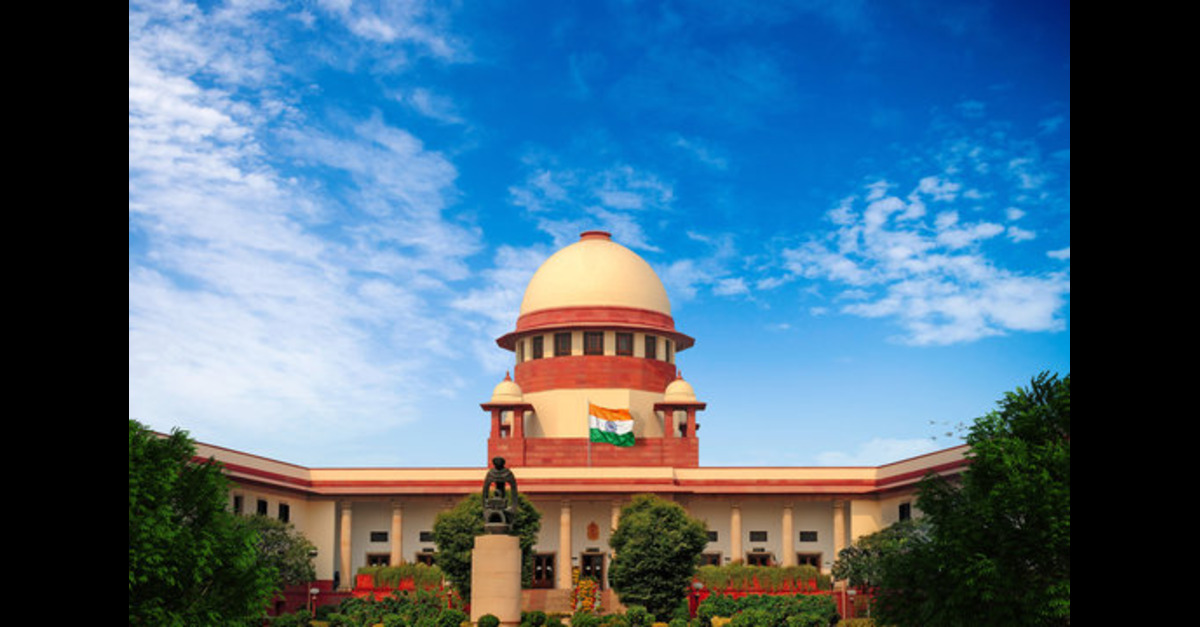Case Name: Nagarajan & Anr. v. The State of Tamil Nadu with Naresh Chandra vs. State of Uttar Pradesh
Case Number: Criminal Appeal No. 1390 of 2025 [Arising out of SLP(CRL.) No. 8401/2022] with Criminal Appeal No. 2054 of 2025 [Arising out of SLP(CRL.) No. 2217 of 2022]
Date of Judgment: 15 May 2025
Quorum: Justices Dipankar Datta and Manmohan
FACTUAL BACKGROUND
Both these criminal appeals, each based on a different incident, present a common question of law and are, accordingly, disposed of together.
In the lead appeal, Nagarajan and Selvaraj urge us to set aside the Madras High Court judgment of 4th June, 2019, rejecting their criminal revision. A sample of curd collected from their shop on 26th June, 2001 was adjudged adulterated under the Prevention of Food Adulteration Act, 1954 (“PoFA Act”). They were found guilty by the Trial Court on 18th June, 2006 and sentenced to six months’ simple imprisonment and a fine of Rs. 3,000 each. The Appellate Court confirmed the conviction on 18th December, 2009, and the High Court dismissed their revision.
In the connected appeal, Naresh Chandra assailed the Allahabad High Court’s order dated 4th July, 2019, dismissing his revision. On 20th March, 1985, he prevented a Food Inspector from taking samples of foodstuffs he was selling. He was convicted on 25th August, 1987 under the PoFA Act and sentenced to six months’ simple imprisonment and a fine of Rs. 1,000. The conviction was affirmed in appeal on 16th November, 1988, and also in revision.
ISSUES FOR DETERMINATION
- Whether the advantage of the provisions of the Probation Act can be awarded to the respective appellants?
- Should the response to the question above be negative, can the lesser sentence that the FSS Act contemplates be imposed on the appellants in lieu?
LEGAL PROVISIONS
Section 16 and 20AA – PoFA Act. Repeal and Savings – Section 97, FSS Act. Article 20(1) – Constitution of India. Article 15(1) – ICCPR (1966). Section 6 and 26 of General Clauses Act, 1897.
APPELLANT’S CONTENTIONS
Counsel for the appellants in both appeals sought a mollification of sentence based on the following grounds:
- Violation of Article 14: Section 20AA of the Prevention of Food Adulteration Act (PoFA Act) arbitrarily denies the benefit of probation to first-time offenders, thereby violating the principle of equality before the law under Article 14 of the Constitution.
- Violation of Article 21: The denial of probation under Section 20AA infringes upon the right to personal liberty under Article 21, as it disregards individual circumstances. The Probation of Offenders Act, 1958 was intended to support rehabilitation and reduce incarceration.
- Contradiction with Section 360 CrPC: Section 20AA contradicts the reformative justice approach embedded in Section 360 of the Criminal Procedure Code, 1973, which encourages rehabilitation over punitive action for minor or first-time offences.
- Legislative Intent in Repeal: The Food Safety and Standards Act, 2006, which repealed the PoFA Act, does not retain a provision equivalent to Section 20AA. This suggests a legislative shift towards a reformatory justice framework, underscoring the argument for leniency.
RESPONDENT’S CONTENTIONS
State of Tamil Nadu: The respondent-State emphasized the explicit language of Section 20AA of the PoFA Act, which categorically excludes the application of the Probation of Offenders Act and Section 360 CrPC. It argued that the legislative intent was clear — food adulteration is a serious crime against public health, and the law mandates strict consequences for such offences.
The State further relied on the Statement of Objects and Reasons for introducing Section 20AA via amendment, highlighting the growing prevalence of food adulteration and the inadequacy of existing laws to combat the menace effectively and uniformly.
State of Uttar Pradesh: No arguments were pressed before the Court on behalf of the State.
ANALYSIS
The Court examined various precedents on the application of the Probation of Offenders Act (POA) to PoFA offences. Prior to the 1976 amendment (Section 20AA), courts granted probation in cases involving PoFA but warned that because such offences involved public health danger and economic offence, they should be used sparingly. The 1976 amendment specifically exempted POA’s application only for offenders below the age of 18 years, indicating legislative intent to seriously punish food adulteration. Later cases reinforced this strict stance, underlining the anti-social and economic nature of food adulteration offences and refusing probation unless in exceptional circumstances. The Court also underlined the doctrine of beneficial interpretation of penal legislation, but at the same time, pointed out it cannot override express statutory exclusions such as Section 20AA. Latest judgments have also reaffirmed these principles but tended to turn imprisonment into fines, but refusing probation. Prior decisions allowing probation or commutation under other circumstances proved to be inapplicable because of alterations in law and facts.
JUDGEMENT
The Supreme Court refused probation and reduction of sentence under new legislation on grounds of legal bars but, on account of case age and evidentiary issues, commuted the appellants’ imprisonment to fines. Nagarajan and Selvaraj were each fined ₹30,000, Naresh Chandra ₹20,000.
CONCLUSION
The benefit of the Probation of Offenders Act does not apply to offences under the PoFA Act committed between 1976 and 2006, following the insertion of Section 20AA. Sentence mitigation is also not allowed when the repealing statute explicitly preserves penalties under the repealed law. However, considering specific case facts and discrepancies in evidence, the appeals are partly allowed by converting the imprisonment sentences into fines. The appellants are granted time until June 2025 to pay the fines, failing which they will have to serve the original prison terms.
“PRIME LEGAL is a full-service law firm that has won a National Award and has more than 20 years of experience in an array of sectors and practice areas. Prime legal falls into the category of best law firm, best lawyer, best family lawyer, best divorce lawyer, best divorce law firm, best criminal lawyer, best criminal law firm, best consumer lawyer, best civil lawyer.”
WRITTEN BY ADI MEHTA


